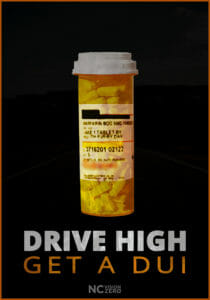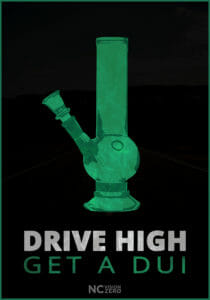Drugged Driving
If you feel different, you drive different.
Drugged driving is driving under the influence of impairing drugs, including prescribed, over-the-counter, and illegal drugs. A drug includes any substance that can impair driving. This includes:
• Illegal drugs
• Legal non-medicinal drugs
• Prescription medications
• Over-the-counter medicines
Always check prescription medications for warning labels such as “Do not drive or operate heavy machinery when taking these medicines.”
Marijuana
Slow reaction time, decreased coordination, loss of attention to the road, difficulty judging time and distance.
Stimulants (Cocaine, amphetamines)
Aggressive, reckless driving, increased tendencies to take risks, confusion, difficulty concentrating, impaired vision and coordination.
Benzodiazepines
Dizziness, and drowsiness, lack of coordination, altered perceptions, impaired memory, and slower reaction time.
Opiates
Slow reaction time, reduced coordination, drowsiness, mental confusion, visual impairment.
Drug impaired driving
Drugged driving is driving under the influence of drugs other than alcohol. Drugs can impair vision, reaction time, judgment, hearing and task processing/accomplishment (EMSA). This impairment can result from prescribed, over-the-counter, or illegal drugs. If you are taking prescriptions, talk to your doctor about any potential impacts on driving abilities.
For information and resources about drug addiction, visit the North Carolina Division of Health and Human Services.

